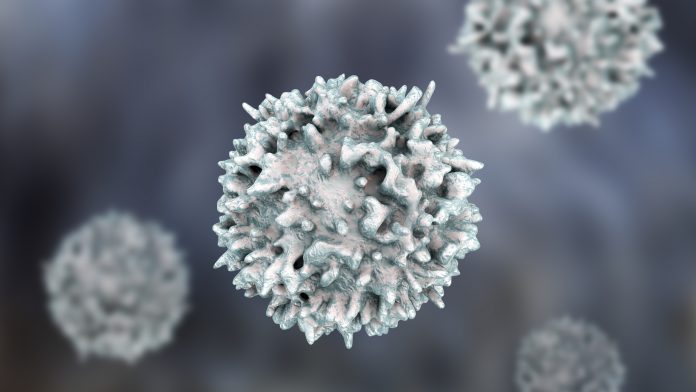
New research involving mice and with observations corroborated by fetal, neonatal, and adult human data from Cornell University demonstrates that a newborns’ T cells surpass those of adults at fighting off numerous infections. The new study clarifies why adults and infants respond differently to infection and may pave the way for controlling T cells’ behavior for therapeutic applications.
The findings are published in Science Immunology. In their paper, the team concluded, “Thus, CD8+ T cells are capable of protecting the host against infection via the canonical antigen-dependent (adaptive) response and also via the poorly understood antigen-independent (innate) response.”
Rudd and Grimson carried out a multiomics study to define how neonatal CD8+ T cells in mice establish their innate-like functions. Their analyses involving chromatin accessibility profiling and single cell transcriptomics characterized how the cells act as bystanders, ready to act by tuning the activity of the transcription factors Bach2 and AP-1. “… we used high-dimensional flow cytometry, RNA sequencing (RNAseq), assay for transposase-accessible chromatin using sequencing (ATAC-seq), and single-cell profiling to identify the key epigenetic programs and transcription factors (TFs) that allow neonatal CD8+ T cells to be more responsive to inflammation,” they explained. They found that, as the cells respond, their chromatin rapidly remodels to support innate anti-pathogen activity.
Their results indicated that newborn T cells are not deficient, rather, they are involved in the innate arm of the immune system that does not require antigen recognition. “Previous studies have suggested that CD8+ T cells produced in early life have more innate-like functions, whereas those generated in adulthood have more adaptive functions,” they pointed out.
So, while adults T cells use adaptive immunity—recognizing specific germs to then fight them later—newborn T cells are activated by proteins associated with innate immunity, the part of the immune system that offers rapid but nonspecific protection against microbes the body has never encountered. “Our paper demonstrates that neonatal T cells are not impaired, they are just different than adult T cells and these differences likely reflect the type of functions that are most useful to the host at distinct stages of life,” Rudd said.
Perhaps one of the most “unexpected findings” from the study, the team noted, is that neonatal CD8+ T cells are more responsive to inflammation than adults because of their ability to undergo chromatin remodeling. “Using a multi-omics approach, we found that the ability of neonatal CD8+ T cells to respond to innate cytokines derives from their capacity to undergo rapid chromatin remodeling, resulting in the usage of a distinct set of enhancers and transcription factors typically found in innate-like T cells,” they stated.
Further research will be needed to answer questions relating to the impact of factors on innate functions of CD8+ T cells, and to better understand the chromatin remodeling in these cells.













